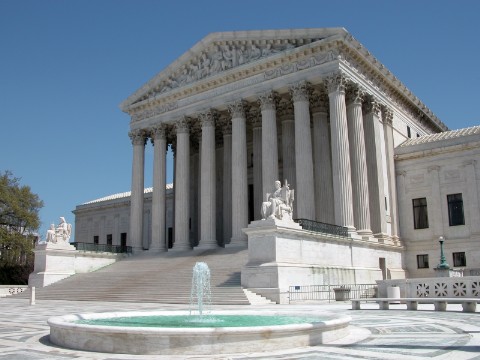Cross-posted by Forbes.com at WLF’s Contributor Site
This spring, the U.S. Supreme Court will address whether to impose significant limits on the scope of lawsuits filed under the Alien Tort Statute (ATS). For the past several decades, the ATS has served as the favorite vehicle of human rights activists and plaintiffs’ lawyers seeking to challenge the overseas business practices of U.S. corporations. The Court’s decision in Kiobel v. Royal Dutch Petroleum will determine whether ATS suits can be filed against corporations, or whether individuals are the only proper defendants. Perhaps more importantly, the Court may agree to hear a second ATS case that raises even more fundamental issues under the ATS, including whether the ATS applies at all to overseas activities.
The ATS is a 1789 law that grants jurisdiction to federal courts to hear tort claims by aliens alleging violations of “the law of nations.” The law lay dormant for two centuries, primarily because litigants assumed that the number of torts to which the law applied was extremely narrow – perhaps limited only to claims by foreign ambassadors that they had been assaulted in this country. But in 1980, the Second Circuit held in Filartiga v. Pena-Irala that the ATS applied to a wide array of alleged human rights violations. In the decades that followed, activists sued U.S. corporations under the ATS for an increasing variety of overseas activities, from operating facilities that allegedly polluted the environment to administering medications without first providing informed consent, to giving oppressive foreign governments financial support. WLF has been actively involved in many of those suits, opposing expansive interpretations of the ATS.
Last year, the Second Circuit (which along with the Ninth Circuit has handled the great majority of ATS cases) reversed course and ruled in Kiobel that the ATS is inapplicable to corporations. If that decision stands, numerous ATS suits against corporations that have been pending for years or decades will have to be dismissed. That includes the granddaddy of them all, Khulumani v. Barclay Nat’l Bank Ltd., an ATS suit filed against virtually every major corporation that did business in apartheid-era South Africa.
Kiobel still permits individual corporate officers to be sued for international human rights violations. Thus, even if the Supreme Court affirms the Second Circuit’s decision, the number of ATS cases may not decrease appreciably; human rights activists may simply refile their lawsuits against senior executives of the previously sued corporations.
But an en banc decision issued last month by the Ninth Circuit – Sarei v. Rio Tinto, PLC – may provide the Supreme Court a vehicle to address the scope of the ATS more broadly. The Ninth Circuit voted 7-4 to permit an ATS suit to proceed against a mining company accused of aiding and abetting the government of Papua New Guinea in violating the human rights of residents of the island of Bougainville. Attorneys for the mining company have asked the Supreme Court to review Sarei and hear it in conjunction with Kiobel.
The Sarei defendants raise two claims regarding the scope of the ATS that, if accepted by the Supreme Court, have the potential to cripple virtually all current ATS litigation. First, they argue that Congress never intended the ATS to apply to activities that occur within a foreign country. Rather, they argue, Congress sought to protect aliens from mistreatment within the United States or on the high seas, not within their own countries. Second, they assert that the ATS does not impose liability on those who merely aid and abet the human rights violations of others.
The Sarei majority rejected both arguments. But those arguments have attracted considerable support among federal appellate judges, including the Sarei dissenters and Judge Brett Kavanaugh of the D.C. Circuit, who filed a forceful dissent from a recent ATS decision from his court. Moreover, the Second Circuit has already adopted a somewhat limited view of the scope of ATS aiding and abetting liability. Because virtually every extant ATS case involves activities alleged to have occurred in a foreign country, all would be subject to dismissal if the Supreme Court ultimately rules that the ATS has no extraterritorial application.
If the Supreme Court agrees by January to review Sarei, the Court will be in a position to hear combined arguments in Kiobel and Sarei in April. Any decision in those combined cases would provide a comprehensive picture of the likely future of ATS litigation. Given that the Court’s 2004 ATS decision (Sosa v. Alvarez-Machain) was broadly skeptical of all ATS lawsuits, it is very plausible that a combined decision this June in Kiobel and Sarei could sound a virtual death knell for such lawsuits.

